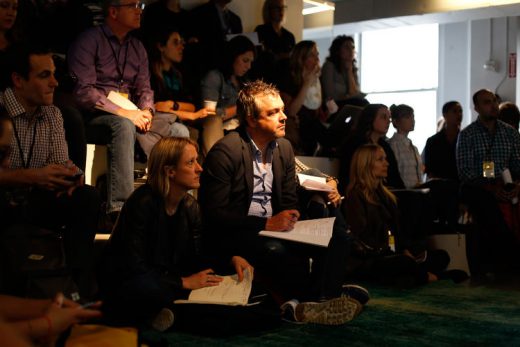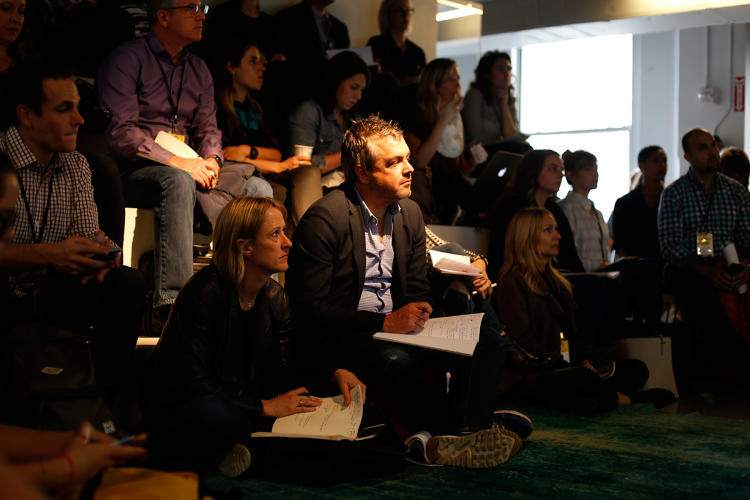This Card Game Can Help Make Your Work More Meaningful
“I care more about my family and my career than I do about my friends—and myself,” Jennifer McLennan, director of Design and Development at Marriott, remarked (November 18, 2016) afternoon, with some alarm. That hadn’t occurred to her before. McLennan was poring over a loose grid of cards, each printed with a value, like “Ambition” and “Courage” and “Peace,” that she’d arranged on the table before her from most to least important.
“I don’t know if that means I’m fucked up!”
It probably doesn’t. Live in the Grey is a consultancy geared to helping businesses create more “authentic workplaces” through better teamwork and more honest, transparent communication. It sees that process as a bottom-up rather than top-down effort, which means it has to start with self-examination on the individual level—an experience that Fast Company Innovation Festival attendees got a taste of in an exercise at Live in the Grey’s offices (November 18, 2016) afternoon.
That’s where the company’s custom deck of 72 “value” cards comes in. By asking participants to decide which values resonated with them the most, which resonated least, and which fell somewhere in between, Live in the Grey was prodding individuals to assume some of the culture-building work that many companies struggle to institute unilaterally.
That work isn’t always easy, as McLennan and others found out, because suddenly, it’s personal. But Kate Bednarski, Live in the Grey’s chief experience officer, provided some encouragement to those who worried about what the values they found themselves de-prioritizing: “You can’t value everything. You just can’t.”
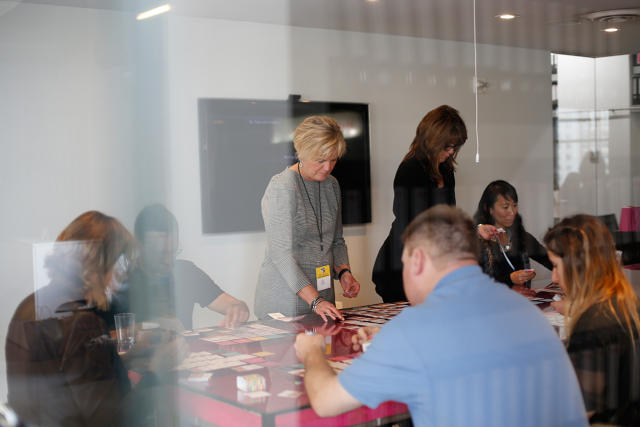
Making “Culture” Personal
That news may come as a relief to some. It’s pretty rare that any of us sit down to analyze what we genuinely care about, even though plenty of career counselors preach a gospel of following our passions.
Meanwhile, companies are scrambling to communicate the underlying purpose of what they do in order to keep “employee engagement” high. Many managers feel the cultural glue that’s needed to bind everyone together could afford to be a bit stickier.
It’s not that the focus on culture-building is misplaced, Bednarski said. It’s actually critical. The problem is that it’s often so impersonal and episodic. “[People] want to do this as part of their work—not as professional development,” she explained, referring to activities that actually hold meaning, as opposed to task-execution that may impact a business’s bottom line but little else.
Bednarski cited recent research (notably by Gallup) suggesting that modern workers have different expectations of their lives and jobs than they did in the past. As Live in the Grey CEO Brad Lande summed up those new priorities, people want to feel more deeply connected to one another, fulfilled by the work they do, and have a greater impact in the world.
These demands are commonly imputed to millennials, and while there may be reason to be dubious about research claiming to diagnose sweeping generational shifts, Bednarski acknowledges that people have always had these fundamental needs. In the past, though, these deep, personal values, she said, “used to not be welcome in the workplace. It was all ‘professional.’”
But creating a more purpose-driven work culture isn’t about imposing meaning from on high. “We don’t get on a camel and look for meaning,” Bednarski added. “We create meaning.” In other words, it’s up to the actual people inside companies to decide what’s important to them—and what isn’t—then build up and out from there.
No Guilt In Prioritizing
McLennan worried she was the only participant in Live in the Grey’s exercise who felt taken aback by the experience, but she wasn’t—many found it difficult. “It was hard to do, for sure,” said Ezra Rufino, director of product management and customer acquisition at FabKids. Others said some of their values were surprisingly easy to rank, at least at first.
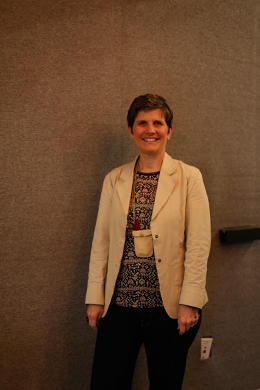
Lisa Huie, an account director at the communications firm A&C Inc., admitted that this wasn’t a totally unfamiliar experience. She’d worked with a coach last year when she was contemplating a major career change. Huie wanted to make the leap within six months; her coach cautioned against it but, she recalled, “I did it in three.”
Even for Huie, though, the experience “felt like it was a process of realignment” driven largely by what she was able to discard. “I was sort of filtering as I was going,” she said. “And I landed with Rationality, Ambition, Professional Growth, Influence, and Possessions at the bottom of my list.”
Somewhat paradoxically, that helped Huie take a second look at the values she was hanging onto. “Some of them gave me pause, where I was like, ‘Yeah, it’s important,’ so I kept sort of putting things over at the important category. But then they started to self-sort, where [I thought], ‘Well it’s not as important as that.’”
Rufino found something similar. Having to prioritize his values pushed him to realize that “next to these 15 other values, it’s really actually not as valuable to me…You’re forced to put things into like, ‘No, I only sometimes value this,’ even though you might think about it as a value for you.”
McLennan said she felt guilty about the soft skills and people-related values she’d knocked to the bottom of her list. That didn’t surprise Bednarski, who argued there was no need for guilt; it was just about gaining clarity. “We don’t have room to value everything—we can’t,” she reiterated. And from an organizational level, which Live in the Grey believes always begins at the personal one, we shouldn’t be asked to.
“There’s something about context,” Huie concluded afterward. Maybe context matters more than we imagine.
Live in the Grey had participants sort through a deck of cards in order to rank their values from most to least important.
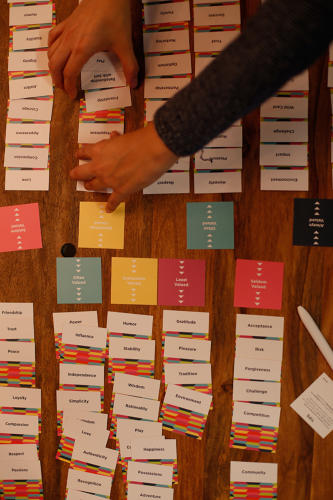
Chief Experience Officer Kate Bednarski says “We don’t get on a camel and look for meaning—we create meaning.”

Brad Lande, CEO of Live in the Grey, believes people need to bring their “whole selves” to work.
‘ src=”http://d.fastcompany.net/multisite_files/fastcompany/imagecache/slideshow_large/slideshow/2016/11/3065177-slide-shravyakaglive-in-the-grey021.jpg”>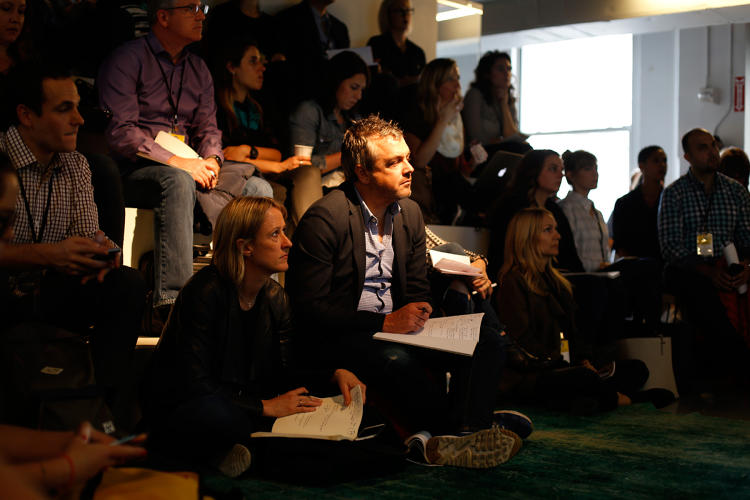
Fast Company Innovation Festival attendees share with each other how they ranked their personal values.
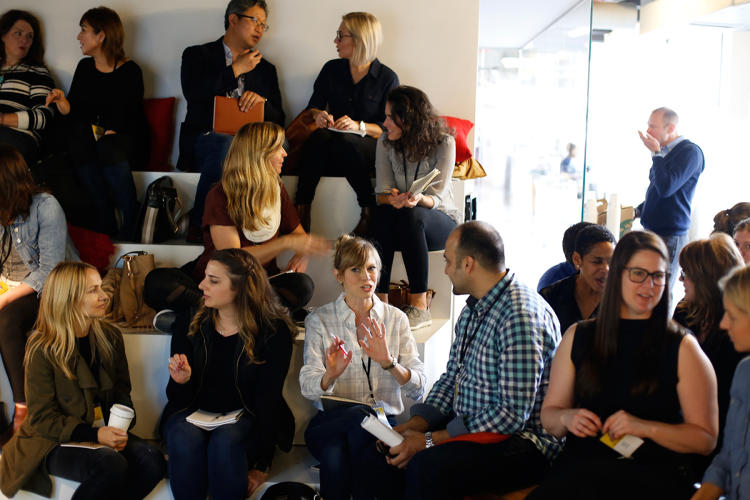
Values are relative to one another, some participants discovered. Context matters.
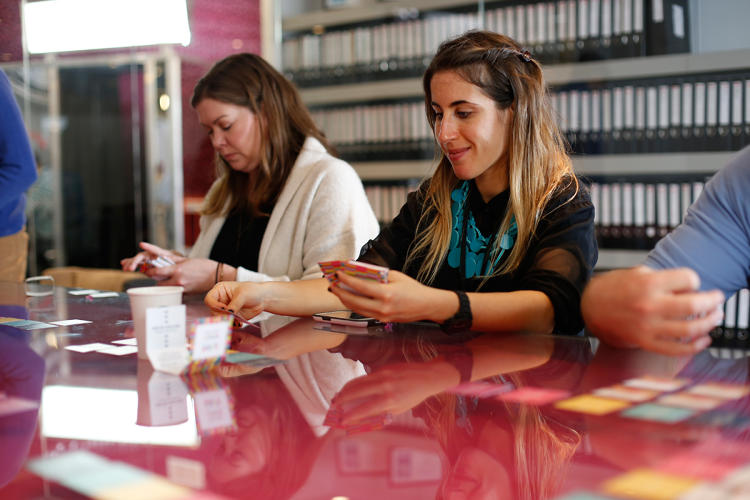
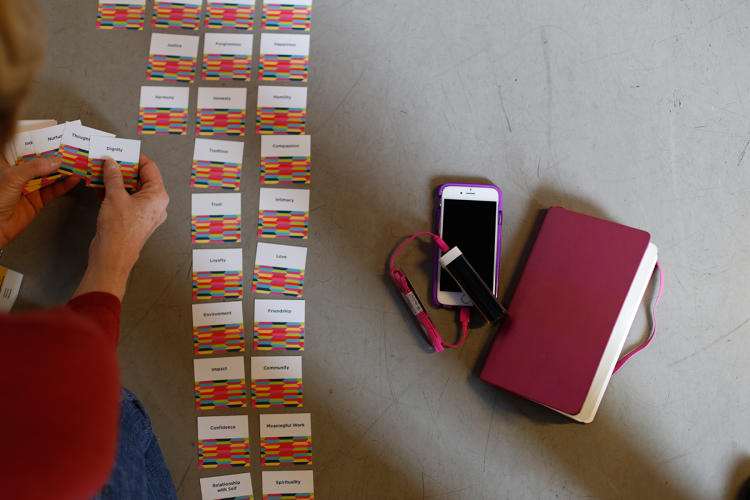
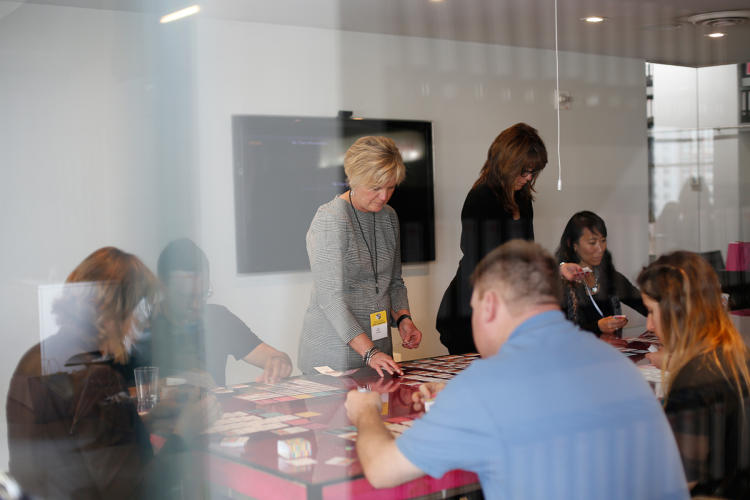
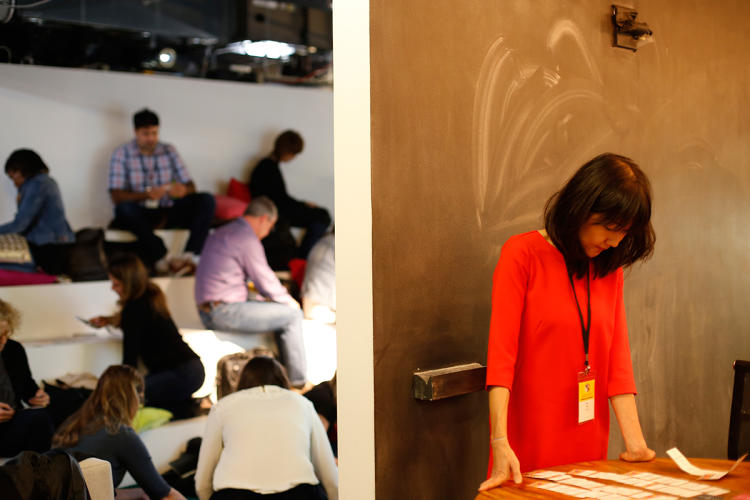
Fast Company , Read Full Story
“Some of them gave me pause,” said Lisa Huie, “but then they started to self-sort…‘Well it’s not as important as that.’”
‘ src=”http://b.fastcompany.net/multisite_files/fastcompany/imagecache/slideshow_large/slideshow/2016/11/3065177-slide-shravyakaglive-in-the-grey049.jpg”>
(41)

